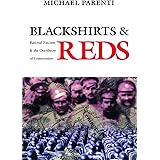
Enjoy fast, free delivery, exclusive deals, and award-winning movies & TV shows with Prime
Try Prime
and start saving today with fast, free delivery
Amazon Prime includes:
Fast, FREE Delivery is available to Prime members. To join, select "Try Amazon Prime and start saving today with Fast, FREE Delivery" below the Add to Cart button.
Amazon Prime members enjoy:- Cardmembers earn 5% Back at Amazon.com with a Prime Credit Card.
- Unlimited Free Two-Day Delivery
- Streaming of thousands of movies and TV shows with limited ads on Prime Video.
- A Kindle book to borrow for free each month - with no due dates
- Listen to over 2 million songs and hundreds of playlists
- Unlimited photo storage with anywhere access
Important: Your credit card will NOT be charged when you start your free trial or if you cancel during the trial period. If you're happy with Amazon Prime, do nothing. At the end of the free trial, your membership will automatically upgrade to a monthly membership.
Buy new:
-23% $14.66$14.66
Ships from: Amazon.com Sold by: Amazon.com
Save with Used - Good
$13.19$13.19
Ships from: Amazon Sold by: Frequency One

Download the free Kindle app and start reading Kindle books instantly on your smartphone, tablet, or computer - no Kindle device required.
Read instantly on your browser with Kindle for Web.
Using your mobile phone camera - scan the code below and download the Kindle app.

OK
 Audible sample Sample
Audible sample Sample 


The Assassination Of Julius Caesar: A People's History Of Ancient Rome (New Press People's History) Paperback – August 30, 2004
Purchase options and add-ons
Most historians, both ancient and modern, have viewed the Late Republic of Rome through the eyes of its rich nobility―the 1 percent of the population who controlled 99 percent of the empire’s wealth. In The Assassination of Julius Caesar, Michael Parenti recounts this period, spanning the years 100 to 33 BC, from the perspective of the Roman people. In doing so, he presents a provocative, trenchantly researched narrative of popular resistance against a powerful elite.
As Parenti carefully weighs the evidence concerning the murder of Caesar, he adds essential context to the crime with fascinating details about Roman society as a whole. In these pages, we find reflections on the democratic struggle waged by Roman commoners, religious augury as an instrument of social control, the patriarchal oppression of women, and the political use of homophobic attacks. The Assassination of Julius Caesar offers a whole new perspective on an era thought to be well-known.
“A highly accessible and entertaining addition to history.” ―Book Marks
- Print length276 pages
- LanguageEnglish
- PublisherThe New Press
- Publication dateAugust 30, 2004
- Dimensions5.5 x 1 x 8.25 inches
- ISBN-101565849426
- ISBN-13978-1565849426
The Amazon Book Review
Book recommendations, author interviews, editors' picks, and more. Read it now.
Frequently bought together

Similar items that may deliver to you quickly
Editorial Reviews
Review
―Publishers Weekly
"A highly accessible and entertaining addition to history. . . . It breathes contempt for the rich of ancient Rome and their apologists hiding in classical studies departments today."
―Bookmarks
"A novel approach."
―Library Journal
About the Author
Product details
- Publisher : The New Press; First Edition, 4th Printing (August 30, 2004)
- Language : English
- Paperback : 276 pages
- ISBN-10 : 1565849426
- ISBN-13 : 978-1565849426
- Item Weight : 11.7 ounces
- Dimensions : 5.5 x 1 x 8.25 inches
- Best Sellers Rank: #180,372 in Books (See Top 100 in Books)
- #36 in Slavery & Emancipation History
- #71 in Historiography (Books)
- #238 in Ancient Roman History (Books)
- Customer Reviews:
About the author

Michael Parenti (Berkeley, CA) is the acclaimed author of more than twenty books, including, most recently, Contrary Notions: The Michael Parenti Reader; The Assassination of Julius Caesar; and The Culture Struggle. The New York Times Book Review, the Washington Post, the New York Review of Books, Harper's, The Nation, and Antioch Review, are among the countless publications that have praised Parenti's work. For further information, visit his Web site: michaelparenti.org
Customer reviews
Customer Reviews, including Product Star Ratings help customers to learn more about the product and decide whether it is the right product for them.
To calculate the overall star rating and percentage breakdown by star, we don’t use a simple average. Instead, our system considers things like how recent a review is and if the reviewer bought the item on Amazon. It also analyzed reviews to verify trustworthiness.
Learn more how customers reviews work on Amazon-
Top reviews
Top reviews from the United States
There was a problem filtering reviews right now. Please try again later.
Parenti focuses his critique around laying out a social history of Rome, along with the long struggle between aristocratic reformers and aristocratic conservatives. Most extant Roman sources demonize the reformers, who although imperfect, almost certainly had Rome's best interests at heart, while exalting the brutal conservatives who slaughtered anyone who questioned the Roman social order. This bias was perpetuated in the modern era by the early-modern classical historians who saw the aristocracy-led Roman republic as an ideal for the modern secular elite in the 1600s, 1700s, and 1800s to venerate. This mode of Rome scholarship became institutionalized in academia, and continues to thrive to this day. One only has to look at the neo-conservative movement's obsession with comparing the United States to Rome in order to see the lasting effects of this academic tendency.
In truth, the Roman aristocracy cared little for the well-being of its citizenry, and even less so for its slaves. As Parenti conclusively proves, one of the most odious myths about the Roman republic was that it treated its slaves well in comparison to other slave-holding societies. The truth is, the Romans constantly worked their slaves to death, were free to abuse and rape their bodies, and hardly ever allowed any of them to receive an education (as is often claimed by classicist historians), not to mention that southern U.S.-style racist ideas were present in the letters of the Roman aristocracy. The mythical well-educated professional slave represented a very rare phenomenon in Roman society, and did not reflect any sort of inherent respect for human universality.
Common people didn't have it much better either. Most were continually (and intentionally) subjected to the threat of starvation, and most plebeians had nearly all their wages nicked by the Roman state to be used for pleasure and conquest by the elite, while never seeing any dignified benefits in exchange besides meager food rations. Small landholders in other parts of Italy were usually being constantly dispossessed by the elite Romans. These trends not only are readily found in historical documents from the period, but were openly celebrated by many Roman aristocrats.
Parenti argues that the obliviousness of mainstream scholarship on Rome derives from two sources. First, historians have often openly identified with the worldview of Cicero and his brethren, and thus looked past the brutal socio-economic reality they promoted in order to vindicate the so-called "virtues" of the republican order. Since Julius Cesar naturally represented a moderate threat to the unhindered dominance of the conservative elites (who invented new interpretations of the Roman constitution on a whim to suit their needs whenever threatened), he naturally must have been an immoral tyrant in the eyes of classicists. Parenti notes that Cesar was a bloody ruler in his own way, but it is important to note that this has nothing to do with why the classicists have historically demonized him. Second, post-modern scholarship places an inordinate level of importance on "texts," thus privileging the perspectives of the well-educated elite who generally were the most literate members of society, or at least the ones whose opinions were preserved through the middle ages. In truth, there are many hints found in the historical record that indicate modest resistance towards the Roman elite's more brutal practices, and the social history of Rome tells its own story that runs in the face of the traditional classicist (and classist) narrative. In a way, Parenti is also defending the Marxist approach to historiography, in that he demonstrates that class divisions are essential, and that myths about the organic wholeness of ancient societies are just that- myths. Texts are capable of misrepresenting reality, and elites are perfectly capable of spinning webs of political mythology in order to obscure social realities.
the best one-volume surveys of that event and its times
that I have read to date. It provides summary treatment of
many important areas, but not in a way that impacts or
lessens its arguments. Parenti's thesis, that the
Senatorial oligarchs were unwilling to share any of their
nearly complete economic domination of the Roman world
with the masses, and destroyed anyone who tried to help
improve the imbalance, is simply what any reading of that
era makes an inescapable conclusion regardless of one's
political or philosophical bent.
As a case in point, Parenti notes that the "Republican"
heroes of the Ides of March claimed to detest Caesar's
monarchical rule and Caesar's complete disregard for
constitutional forms. Yet such a careful avoidance of
one-man rule and such a close preservation of the
constitution was nowhere evident when the Senate appointed
Pompey sole consul in 52 BC. As seems to hold for all
peoples in all times, the Romans were fiercely loyal to the
law when it served their interest, and bent it or tossed it
out all together when it did not.
I could not disagree with any of Parenti's major theses,
though I am no Marxist (and I think that Parenti is likely
to consider himself a Marxian historian, not merely a "progressive",
though I am not sure.) I fall short of considering
Caesar's rule as "a dictatorship of the proletarii." It
most assuredly was not (and I do not think Parenti truly
believes that it was.) I see Caesar (and I think that
Parenti could agree with this) as being more akin to FDR:
an enlightened oligarch who knew what it would take to
stabilize his unsteady world. By bettering the lot of the
masses -- even when it noticibly impinged upon the
oligarchs' traditional advantages -- he made it possible
for the oligarchy to persist. Caesar was no popular
revolutionary, though a reformer (nor was FDR a
revolutionary, though many today call him such.)
Parenti does not use original sources, preferring to rely
on standard works in English translation, and standard
authors such as Syme, Scullard, and Grant, as well as
Gibbon and Mommsen, but he clearly has read a wide range
and great depth from these resources.
This was an extremely readable, well researched, and
though-provoking book. I do not buy into every single part
of Parenti's theses, but I find it overall convincing and
persuasive.
Top reviews from other countries
Libro indispensable que debería ser lectura obligatoria en las escuelas.













